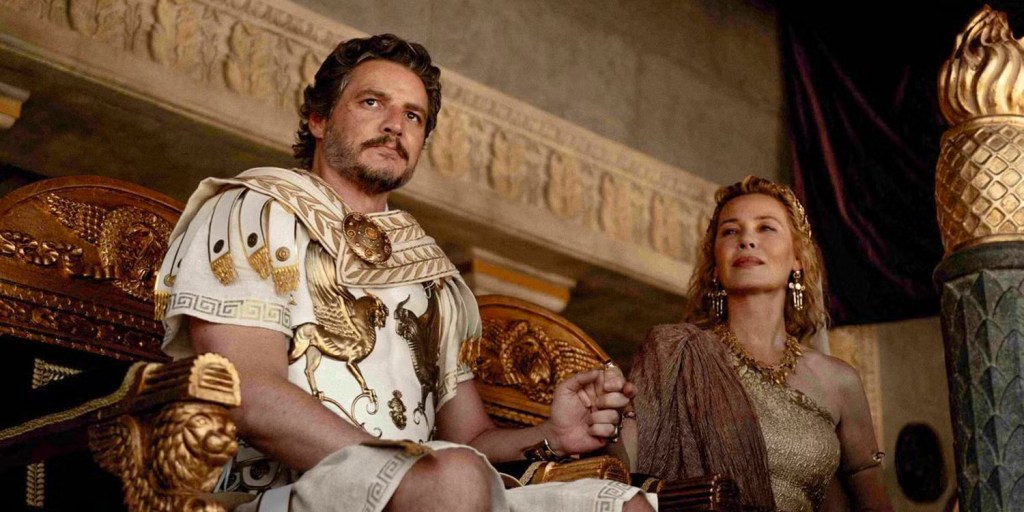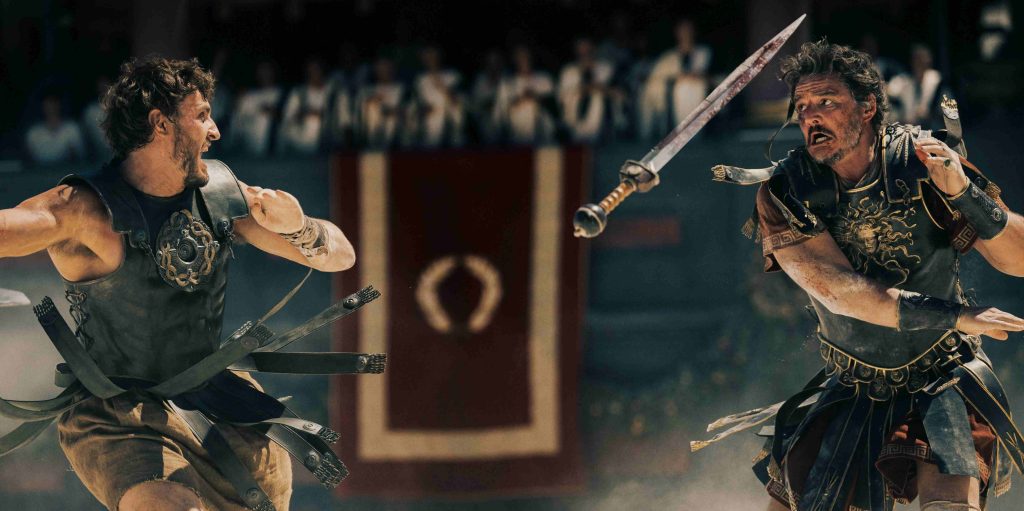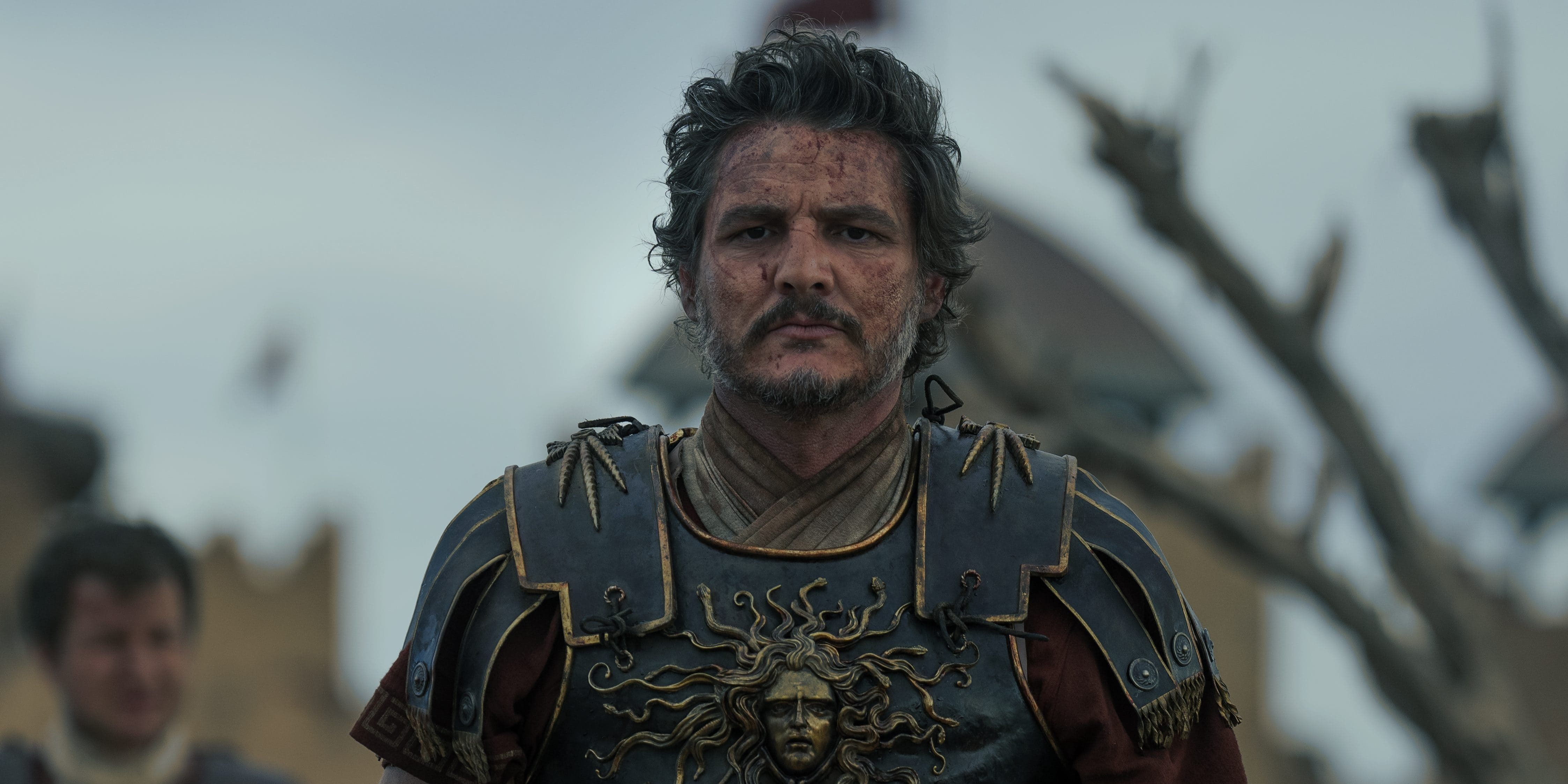Helmed by Ridley Scott, ‘Gladiator II’ revolves around Lucius Verus Aurelius, a Rome-born exile living in the African territory of Numidia who loses his wife during the Roman army’s invasion of the region. As he embarks on an epic journey that leads him to the gladiatorial pits of the Colosseum, he sets his sights on General Acacius, the Roman general responsible for turning his life upside down by paving the way for his wife’s murder. However, as the narrative progresses, the motives and plights of Acacius are revealed to be much more complicated than Lucius’ understanding of them. Gradually, his place in Roman politics becomes evident as he turns against his emperors with the best interests of his empire in mind! SPOILERS AHEAD.
General Acacius is a Fictional Military Leader With No Ties to Reality
General Acacius is a fictional Roman general with no real-life counterpart. He was conceived by David Scarpa, who penned ‘Gladiator II’ based on a story by himself and Peter Craig. The character serves as the bridge between Lucius and Rome, especially following the death of his wife, Arishat, who is killed by the general’s forces during his conquest of Numidia. As such, the protagonist swears to kill the man in retribution for his actions, which is similar to his father Maximus’ motivations in the original ‘Gladiator.’ However, a layer of complexity arises when it is revealed that Acacius is actually the new husband of Lucilla, Lucius’s mother. Additionally, the general takes neither pleasure nor joy in waging wars for Rome, considering it a necessary part of his job to appease the leadership.

Although Acacius does the dirty work of Emperors Geta and Caracalla, he is conflicted about his position and worries about Rome’s trajectory as a nation. He secretly wishes to rectify the twin emperors’ ruthless and iron-grip edge by deposing them of their power via a coup. His backstory and character makeup are oddly reminiscent of Maximus’ actions, albeit in a slightly different context and a different time, especially considering how they both see the reigning Roman emperor(s) as unfit for the purpose of running the empire. Still, his actual relevance within the plot is mainly confined to the psychological hurdle and target he provides Lucius, who channels all his rage towards Acacius in the hopes that he can gain his vengeance.
General Acacius Represents the Conflict Raging Within Rome’s Walls
Although set during a historical period with several historically relevant characters and events, ‘Gladiator II’ veers away from accurate portrayals to present a dramatic tale brimming with pathos, urgency, and spectacle. Even the protagonist Lucius, who is said to be the grandson of Marcus Aurelius, is, in fact, a fictionalized version of the co-emperor Lucius Verus and Lucilla’s son, Lucius Verus II. His real-life counterpart died young, making it impossible for him to have lived long enough to ascend to the emperor’s throne. Thus, the movie showcases Ridley Scott’s focus on depicting a narrative that ultimately puts drama and intrigue over historical precision. The same applies to General Acacius.

As the narrative moves forward, Acacius begins to embody the sentiments raging among Roman netizens under the harsh subjugation of Emperor Geta and Caracalla. He is tired of their poor leadership and their constant bloodlust, which has led the nation astray and made it a constant battleground. As a military leader, Acacius feels the real brunt of their leadership since he has to constantly wage wars against innocent kingdoms to make them fall under the heel and power of Rome. He has become an unwilling instrument for the destruction sought by the emperors, which makes him the enemy in the eyes of people like Lucius. However, his real loyalty lies with Rome’s well-being and progress. Consequently, he presents an intimate and complicated character with conflicted emotions, albeit fictional in conception.
Read More: Gladiator II: How is Lucius Verus Aurelius Related to Russell Crowe’s Maximus?


You must be logged in to post a comment.